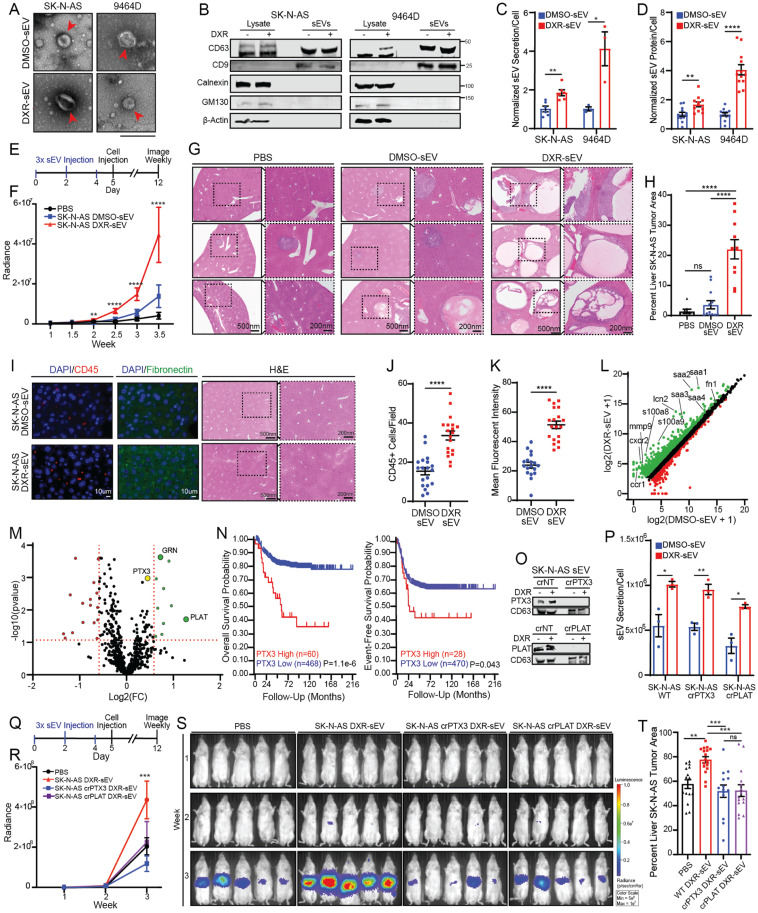
Chemotherapy-induced small extracellular vesicles prime the pre-metastatic niche to accelerate neuroblastoma metastasis


Neuroblastoma is the most common extracranial solid tumor in children, accounting for more than 10% of cancer-related deaths in this population. The standard of care for patients diagnosed with medium-to high-risk neuroblastoma, including those who present with metastatic disease, is preoperative induction chemotherapy.1 However, approximately 40% of patients experience relapse or recurrence despite treatment, and evidence suggests that certain chemotherapeutic drugs may promote metastasis through poorly-understood mechanisms.2 Recent research has highlighted the role of small extracellular vesicles (sEVs) in regulating cancer progression and metastasis through the transfer of cellular material.3 In this study, we investigated how DNA-damaging chemotherapeutic drugs affected the secretion and contents of neuroblastoma sEVs and how these sEVs impacted metastasis. We demonstrate that chemotherapy increases the secretion of neuroblastoma sEVs and alters their protein content, leading to accelerated hepatic metastasis in both immune-competent and -deficient mouse models. Additionally, we identify sEV-associated pentraxin 3 (PTX3), an acute-phase inflammatory glycoprotein, and the tissue-type plasminogen activator (PLAT), a serine protease, as critical factors involved in the formation of the pre-metastatic niche with a STAT3-associated inflammatory gene signature.
